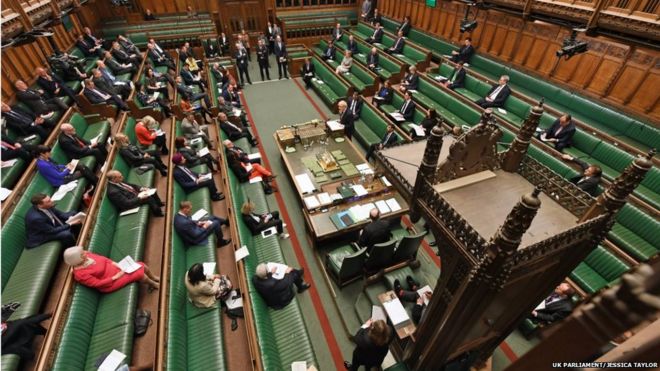A new study highlights a gender and income gap when it comes to trust in institutions

Women and low-income people are less trusting of the government and key institutions, a new report reveals. The John Smith Centre and University of Glasgow study also found that those groups also have less trust in the BBC, courts and the police.
The findings have led to calls to address the trust ‘income gap’, as the lack of trust will make it less likely to follow government rules amidst the economic slump and possible second covid-19 wave.
Those on £60,000 or more were three times more likely to report high levels of trust in politicians than those earning between £10-20,000. Police and the courts also got high levels of trust from the wealthier group, while those making more than £30,000 were more likely to trust the BBC, newspapers and bankers.
Kezia Dugdale, director of the John Smith Centre, said that the ‘always low’ trust in politicians took a further hit after the 2008 financial crash and the pandemic.
She added: “Women, people on low incomes and the young represent the three groups most exposed to the economic crisis that will follow COVID-19. How institutions, governments and elected officials respond to that crisis will affect their lives more than most – the degree to which they trust those people and institutions matters.”
Sampling from 1,424 people in Great Britain, the ‘Trilogy on Trust’ reports highlighted gender, income and age gaps in public trust. The ‘gender gap’ has also triggered calls for a discussion on how to tackle distrust in politics among women and break down structural barriers.
Fewer than one in eight women reported a high level of trust in politicians, with just under 11 per cent viewing them as public servants. In contrast, younger people are less likely to call politicians ‘self-serving’ or to consider politics ‘a waste of time’.
This comes alongside a new poll which found a majority want an end to jeering and shouting in Parliament, a practice many credit with putting regular people off politics. The Compassion in Politics polling found 51 percent were in support in ending the tradition, with 69 percent saying MPs should be allowed to join remotely even after the pandemic.
Debbie Abrahams, Co-Chair of the All Party Group for Compassionate Politics, said that the ‘coarsening’ of the debate has had a ‘detrimental’ effect in politics.
“Not only has it limited the potential for considered, detailed, and constructive discussion, it is alienating to the public and disrespectful to members,” she added.
“That kind of behaviour would never be tolerated in a home, school, or workplace, and it should not be tolerated in parliament either. Toning down the abuse and turning up the constructive debate could go along to restoring some public confidence in the work of MPs and in our political system more generally.”
Sophia Dourou is a freelance journalist
Left Foot Forward doesn't have the backing of big business or billionaires. We rely on the kind and generous support of ordinary people like you.
You can support hard-hitting journalism that holds the right to account, provides a forum for debate among progressives, and covers the stories the rest of the media ignore. Donate today.



